Matcha vs Coffee: How Much Caffeine Do They Really Have and Which One Should Power Your Day? (Bazan Coffee Guide)
In the world of modern caffeine rituals, two contenders rise above the rest: matcha and coffee. While both are beloved for their energizing effects, their caffeine content, delivery, and physiological impact are far from identical. This raises a vital question for any mindful sipper: how much caffeine in matcha vs coffee, and which option offers the best blend of energy, focus, and flavor?
This guide explores the caffeine differences between matcha and coffee from a scientific, sensory, and lifestyle perspective.We break down the numbers and help you choose the right brew for your needs, with Bazan Coffee as your ally in precision and flavor.
Quick Comparison: How Much Caffeine in Matcha vs Coffee?
|
Beverage (standard serving) |
Avg. Caffeine (mg) |
|
Brewed Coffee (8 oz) |
|
|
Matcha (1 gram powder) |
60–70 mg |
|
Matcha Latte (8–12 oz) |
30–70 mg |
|
Espresso (1 oz) |
63–75 mg |
Conclusion: Coffee generally contains more caffeine per serving, but matcha offers a gentler and longer-lasting effect.
Understanding Matcha: Caffeine with Calm
What Is Matcha?
Matcha is a finely ground powder of shade-grown green tea leaves, traditionally used in Japanese tea ceremonies. Unlike steeped tea, matcha involves consuming the entire leaf, which increases both nutrient and caffeine intake.
How Caffeine Works in Matcha
-
Matcha caffeine is bound to L-theanine, a unique amino acid that promotes calm alertness and enhances cognitive focus.
-
Caffeine absorption is slower and more sustained, lasting 4–6 hours without a pronounced crash.
-
Barista Hustle research suggests matcha creates a “soft stimulation curve”, perfect for meditation, creative work, and study.
Matcha may contain less caffeine than coffee, but its effects feel smoother and longer-lasting. The presence of L-theanine offsets the common side effects of caffeine such as jitters or energy crashes.
Coffee: Fast, Powerful, Adaptable
How Much Caffeine in Coffee?
Coffee’s caffeine content depends on several factors:
-
Roast level: Lighter roasts retain slightly more caffeine by mass
-
Brew method: Cold brew and espresso are denser in caffeine
Bazan Coffee Caffeine Benchmarks:
|
Product |
Bean Type |
Avg. Caffeine (8 oz) |
Best Use Case |
|
Cau Dat Arabica |
Arabica |
90–110 mg |
Pour-over |
|
Special Vietnam Blend |
Blend |
120–150 mg |
Espresso |
|
Fine Robusta – Krong Năng |
Robusta |
160–200 mg |
Coffee’s caffeine hits faster typically within 15–30 minutes and is ideal for high-energy mornings or physical productivity.
According to CQI studies, Bazan’s Robusta beans maintain high caffeine content without bitterness, thanks to controlled fermentation and medium-dark roasting. The caffeine profile supports enhanced alertness, improved memory retention, and neuromuscular performance, as reported in multiple SCA-backed studies.
Key Differences: How Matcha and Coffee Affect Your Body
|
Factor |
Matcha |
Coffee |
|
Onset |
Gradual (30–45 minutes) |
Fast (15–30 minutes) |
|
Duration |
4–6 hours (stable) |
2–3 hours (sharp peak) |
|
Mood effect |
Calm focus (L-theanine synergy) |
Alert, stimulated |
|
Crash risk |
Low |
Higher (especially with sugar) |
|
Antioxidants |
Catechins, EGCG-rich |
Chlorogenic acids, melanoidins |
|
Customization |
Limited (fixed powder dose) |
High (grind, dose, method) |
|
Digestive effect |
Gentle |
Can be acidic or harsh if overbrewed |
Coffee’s psychoactive effects are more immediate, which is excellent for athletes, executives, or those in need of short-term high performance. Matcha’s L-theanine-caffeine combination favors deep concentration and anxiety management.
How Much Caffeine in Matcha vs Coffee: By Scenario
For Mornings
-
Coffee wins with fast energy, especially via espresso or cold brew
-
Best with Bazan’s Fine Robusta for long workdays
For Studying or Meditation
-
Matcha wins for sustained, focused calm
-
Ideal in the form of ceremonial-grade matcha or oat milk latte
For Athletes or Physical Performance
-
Coffee wins, especially high-caffeine brews pre-workout
-
Choose Special Vietnam Blend for strength and flavor
For Sensitive Stomachs
-
Matcha is gentler, with lower acidity
-
Cau Dat Arabica from Bazan offers a soft, low-acid coffee option with medium caffeine
Myths and Misconceptions
Myth #1: Matcha has more caffeine than coffee.
-
Not true. Even premium matcha rarely exceeds 70 mg per gram.
-
Coffee often doubles that depending on roast and method.
Myth #2: All matcha is calming.
-
Only matcha with high L-theanine content provides this benefit. Many commercial-grade powders lack it.
Myth #3: Darker roasts have more caffeine.
-
Caffeine slightly decreases with longer roasts. Lighter roasts may feel weaker but retain more caffeine by mass.
Myth #4: Matcha never causes jitters.
-
Incorrect. High doses or low-grade matcha without sufficient L-theanine can still cause overstimulation.
FAQs: How Much Caffeine in Matcha vs Coffee?
Q1: Which gives more energy matcha or coffee?
Coffee gives faster, stronger energy. Matcha gives smoother, longer-lasting focus.
Q2: Is it okay to drink both in one day?
Yes! Start with matcha and switch to coffee later or vice versa, based on your energy needs.
Q3: Can matcha replace coffee?
Only if you prefer slower stimulation. It may not match the same intensity.
Q4: Which is better for anxiety?
Matcha. L-theanine moderates caffeine’s effects and helps reduce jitteriness.
Q5: Can I combine matcha and coffee?
Yes “green eye” drinks blend matcha + espresso. Try using Bazan’s Cau Dat Arabica for balance.
Why Bazan Coffee Wins the Caffeine Game
While matcha offers impressive benefits, Bazan Coffee gives you precision, potency, and pleasure:
-
Choose between high-caffeine Robusta or smooth Arabica
-
Customize your brew method to optimize caffeine and flavor
-
Enjoy traceable Vietnamese coffee with ethical sourcing and expert fermentation
-
Access the full spectrum of caffeine from mellow pour-over to bold cold brew
Whether you're a matcha loyalist or a coffee explorer, Bazan delivers consistent, elevated energy with flavor integrity.
Shop Bazan Coffee and Brew Energy on Your Terms
Explore Bazan’s premium Vietnamese coffee lineup:
-
Fine Robusta – Krong Năng: unmatched caffeine power, smooth bitterness
-
Special Vietnam Blend: bold yet balanced perfect for daily energy
-
Cau Dat Arabica: floral, complex, and ideal for mindful brewing
Visit our shop page and choose the brew that fuels your goals.
Because when it comes to how much caffeine in matcha vs coffee, Bazan gives you energy with expertise.
Drink smarter. Brew better. Choose Bazan Coffee.



